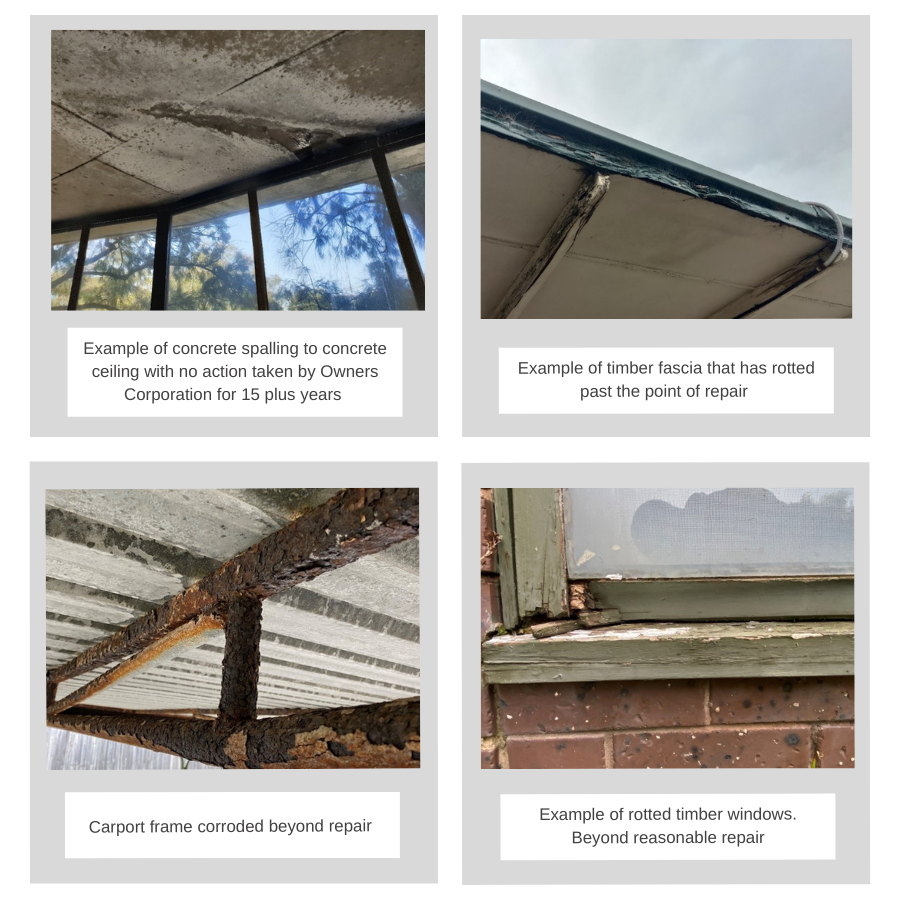The Importunate of Funding for Common Property Repairs (Maintenance Plans)
Is your Owners Corporation not adequately maintaining their investment? More often than not, this is due to inadequate funding. This will likely affect the sale value of the lots and increases the risk of large special levies when the works can no longer be ignored.
Why is This?
The main reason is that simply, in many instances, having the owners invest their money into an account they don’t control, and when it’s not mandatory for the owners to invest their funds over time, can be like getting blood out of a stone. The result being that property maintenance decisions are made reactively rather than proactively.
New legislation now requires Owners Corporations totalling 51 lots or greater to approve a maintenance plan, which is a positive step forward for the industry. However, many Owners Corporations covering less than 51 lots still require funding for major works, such as passenger lifts, roof replacement, external painting and other plants and equipment.
Encourage Owners to Take Action
We advise all Owners Corporations to take action, be aware of their building and of specific needs, and to develop a maintenance plan or ensure some form of funding is in place, regardless of the number of lots of their building/s.
We encourage the following:
- Owners to have a maintenance inspection undertaken;
- To identify the known and potentially unknown cost cycles (the earlier the better);
- The committee to have a “Maintenance Plan Review Meeting”;
- The committee should ask questions and understand the plan;
- Don’t set and forget and be proactive, and
- Review the plan and budget at least every 3-5 years.
Explain the benefits to the Owners
- Long term needs of building assessed and funded;
- Potential problems may be identified when plan is being prepared or reviewed;
- Allows works to be undertaken when needed and as funds are available;
- Promotes a view of a well-maintained building and prudent Owners Corporation;
- A fairer system of funding for all stakeholders;
- Special levy is typically not required;
- Financial certainty for all owners;
- Adds value to their investment, and
- Promotes saleable units and liveable Owners Corporations.

There are many case studies where substantial special levies and/or alternative funding has been required in order to undertake works, in many instances putting stakeholders in financial hardship.
Considering the current owners are often playing “catch up” for funds that should have been set aside by previous owners and fairly contributed over the life of each asset, this illustrates that nothing lasts forever, and a more pragmatic approach is required when maintaining common property, including how this is funded.
The earlier a maintenance plan budget is set up, the easier the process and the fairer the financial requirements are for all stakeholders over the long term.
Kingsley Osmond
Director
Phone: 1300 762 295
Email: info@mabi.com.au
Web: www.mabi.com.au

View Comments
(0)